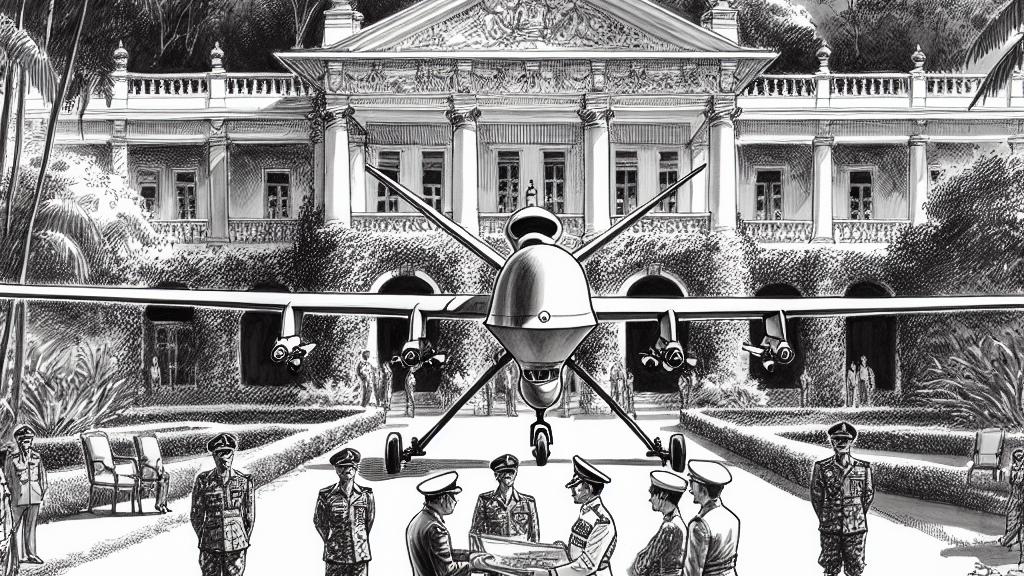Biden and Modi Strengthen U.S.-India Defense Ties with Drone Procurement
Overview
- The acquisition of 31 MQ-9B drones marks a crucial enhancement in India's military capability.
- This significant deal demonstrates the evolving defense partnership between the U.S. and India.
- Negotiations are poised for closure soon, further solidifying the strategic alliance.

Strengthening Defense Relationships
On September 21, 2024, a landmark meeting between U.S. President Joe Biden and Indian Prime Minister Narendra Modi took place at Biden’s personal residence in Wilmington, Delaware. This was not just a routine diplomatic exchange; it was a pivotal moment in U.S.-India defense relations. President Biden enthusiastically acknowledged the progress made towards India’s procurement of 31 state-of-the-art MQ-9B armed drones from General Atomics. This acquisition is vital, as it will significantly enhance India's intelligence, surveillance, and reconnaissance capabilities, especially in light of increasing tensions with China. The drone deal, therefore, serves as a powerful symbol of the growing strategic partnership between the two nations, which aims to address shared security challenges more effectively.
Details of the Procurement
In a deal valued at over $3 billion, the procurement includes 16 Sky Guardian and 15 Sea Guardian drones. These technologically advanced systems are designed for various missions, showcasing incredible versatility. For example, they can remain airborne for an astonishing 35 hours, allowing them to conduct extensive surveillance and rapid response missions. This capability is particularly crucial for India, which faces security challenges in its maritime region and along its northern border with China. Moreover, this drone acquisition fits into a larger framework of defense collaboration, which encompasses co-production agreements for advanced fighter jet engines and unmanned aerial technologies, thus demonstrating a profound commitment to integrating American innovations into India’s defense strategy.
A Broader Strategic View
The deepening defense ties between the U.S. and India extend well beyond this drone deal, shaping a robust strategic alliance that seeks to counterbalance China's influence in the Indo-Pacific. As both nations align their interests, they are working on collaborative initiatives that involve advanced weaponry, technology transfer, and innovative defense solutions. Recent agreements highlight the potential for shared research in cybersecurity and space, showcasing the broad spectrum of cooperation. Notably, India's military modernization efforts are complemented by these U.S.-India partnerships that aim not only to enhance defense capabilities but also to ensure regional stability. Ultimately, as both leaders reaffirm their commitment to this partnership, it becomes clear that they are not merely reacting to adversities; they are proactively shaping a future that prioritizes security, technological advancement, and mutual growth.

Loading...